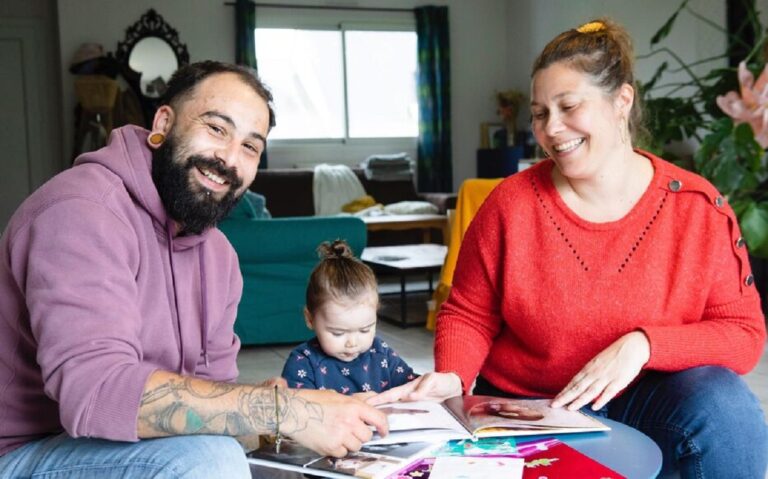A Modern Family Arrangement
In a world where family structures are evolving, two friends have taken a bold step to redefine parenting. Instead of following the traditional path, they chose to create and raise a child together as platonic partners. This unconventional approach highlights the flexibility and adaptability of modern families.
The Decision to Co-Parent
Sarah and Mark, both in their early 30s, have been best friends since college. After years of discussing their future and personal aspirations, they realized they both wanted children but hadn’t found the right romantic partners. Instead of waiting, they decided to take matters into their own hands. “We have always supported each other through life’s ups and downs,” Sarah explains. “We knew we could provide a stable, loving environment for a child together.”
Planning Parenthood
The decision wasn’t made lightly. Sarah and Mark spent months researching and consulting with family therapists, legal advisors, and other co-parenting couples. They wanted to ensure they were fully prepared for the responsibilities and challenges ahead. “It was important for us to understand the legal implications and make sure everything was clear and agreed upon,” Mark adds. They drew up a co-parenting agreement to outline their responsibilities, financial contributions, and parenting styles.
Living Arrangements and Daily Life
Sarah and Mark live in separate homes but close enough to share parenting duties seamlessly. They split their time equally with their daughter, Emma, ensuring she has a consistent routine. “We function like any other parents,” Sarah says. “We have a shared calendar for Emma’s activities, communicate daily about her needs, and support each other in every aspect of parenting.”
The Support System
One of the most crucial aspects of their arrangement is their support network. Both families and friends have embraced their decision and offer help whenever needed. “Having a strong support system has made all the difference,” Mark notes. Their community has rallied around them, providing emotional support and practical assistance.
Overcoming Challenges
Like any parents, Sarah and Mark face challenges. Balancing work, personal lives, and co-parenting requires constant communication and flexibility. “There are times when we disagree on parenting decisions, but we always find a way to compromise,” Sarah admits. They prioritize Emma’s well-being above all else, ensuring that any differences are resolved amicably.
Personal Reflections
As someone who grew up in a traditional family, I find Sarah and Mark’s story both inspiring and heartwarming. It reminds me of the time I spent with my best friend’s family, where love and support were abundant, regardless of the family structure. Their journey demonstrates that family is not defined by conventional norms but by the love and commitment shared among its members.
The Impact on Emma
Emma, now three years old, is thriving in her unique family environment. She enjoys the love and attention of two dedicated parents and a wide circle of supportive adults. “Emma is a happy, well-adjusted child,” Mark proudly states. “She knows she is loved, and that’s what matters most.”
Conclusion
Sarah and Mark’s decision to co-parent as friends challenges traditional views of family and parenting. Their story is a testament to the evolving nature of family dynamics and the power of love and commitment. As society continues to change, their experience offers a blueprint for others considering alternative paths to parenthood.
For those interested in exploring similar arrangements, resources such as the Co-Parenting Directory and legal advisors specializing in family law can provide valuable guidance. The key takeaway is that family, in any form, thrives on love, cooperation, and a shared commitment to the well-being of the child.






